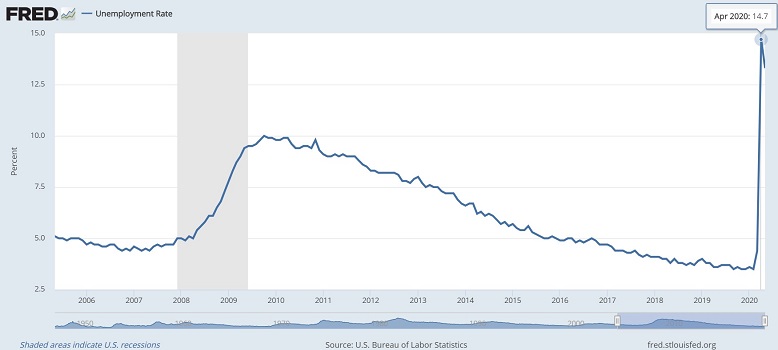If you’ve never seen someone losing their job, it usually goes something like this:
- The employee gets a surprise meeting invite. It’s your last day, but you don’t know it yet.
- Someone from HR — and your direct manager if he/she has balls — meets you in the meeting room and delivers “the talk.”
- There’s a letter explaining what kind of compensation the company is offering. You’re expected to read it and sign on the spot. They’ll normally give you better than what’s required by law — so you’ll accept and everyone can move on.
- Someone will accompany you to your desk to clear your stuff. Then you’ll give back your company laptop, say goodbye to your neighbors (no time to visit other departments), and be escorted out.
If everything goes as planned, the process from “the talk” to leaving the building can take less than an hour. It doesn’t matter if you’ve worked there for 30 years. The process is meant to be short — the company can’t risk unhappy ex-employees roaming around, spreading bad vibes to the survivors.
– – –
The first time I had to give “the talk,” I was so nervous, I asked my general manager how to do it. “If you feel okay after laying someone off, you have no business being a manager,” he said. “You’ll always feel rotten. Just get through it, then go home to clear your mind.”
But of course nothing prepares you for the actual day. The employee I was laying off — and someone I consider a friend — burst into tears. For almost two years, we used to sit beside each other and have lunch together. Since that fateful day, I’ve probably seen Z three times.
Last week, another ex-employee told me she’d just lost her job. Reason: the coronavirus crashed the global economy and companies everywhere are cost cutting. I’d been expecting the job cuts for a while now, but it’s still incredibly painful when your friends lose theirs.
I thought I’d compile some of my thoughts and experiences into an article. While I’ve never lost my job, I’ve been on the other side of the table, and I’ve survived situations where people were getting cut every month. This will probably be one of the hardest articles I’ll ever write, but I hope you find it useful.
Here’s what I want you to know about layoffs.
1. Businesses Need to Make Money
“Why do businesses exist?”
If you’ve never philosophized this, let me invite you on a thought experiment. Do businesses exist to:
- A. Make money for the owners?
- B. Provide valuable services to society?
- C. Give employment to workers and help them grow?
If you’re a hardcore capitalist, you might choose A. If you’re a socialist-leaning dreamer, you might like B. But if you’re like me when I was 24 — you would have chosen C.
The “correct” answer is of course a combination of all the above. But it’s not often easy to see, especially when we’re used to viewing companies as our provider of employment and benefits. When I was younger, that one dimension was all I saw: a company was my source of money, and I didn’t care how they got that money. “They need to pay me, no matter what.”
But what if the company isn’t doing well? “Well that’s for the finance people to figure out. I work in operations.”
Today, I realize how naive I was. To achieve even one of the above objectives, a company needs to make money. But since we’re aiming for all three (and let’s be honest, most companies still prioritize owners over employees), it’s crucial to everyone that the company is financially healthy.
Because when a company stops making money, that’s when shit goes down.
2. Business When There’s No Business
Question #2: “In a downturn, everyone suffers — but who suffers the most?” Your options: owners, customers, and employees.
Congratulations if you said either owners or employees. Customers don’t suffer much because they can just stop buying stuff. Owners (including shareholders) on the other hand, face a real risk of their company going bankrupt — losing everything they’ve invested. So they’ll spring into action and start slashing costs.
Guess what the highest costs (~70%) for most companies are? Right, the employees.
“But why can’t companies just absorb the hard times? They’ll still need good employees when things get better right?”
Actually, most companies try to. In countries where there’s good labor protection (including Malaysia), companies will try all kinds of things before they start cutting jobs. A popular thing to do nowadays is paycuts across the entire company, so nobody loses their job.
But there comes a point where even this won’t help. Sometimes jobs do need to be cut, otherwise the entire company goes down. This is a painful but necessary choice for management: Do you sacrifice 15% of the employees to give the other 85% a better chance at survival?
I suspect you know the answer.

3. Everyone’s Running Out of Cash
If you’re into personal finance, you’ll know this financial goal: emergency savings of 6-12 months. This is protection: if something bad happens (e.g. accident, health problem, or losing your job), you’ll have time and money to recover.
Ever wondered how much cash reserves companies have?
Outliers like Apple and Google aside, most companies are probably broker than you and me. That might sound strange, because when we think of companies and their shiny offices, we naturally think they’ve got lots of money. Besides, it’s human nature to think everyone else is richer than you.
The reality for businesses is scarier: Surveys (Malaysia & USA) have shown most small businesses only have cash buffers of 1-2 months. This kinda worked in a normal economy — but who would have ever predicted a global coronavirus would shut down everything for months? If these small businesses don’t start making money or get additional funding — many of them will just die.
Even huge ass multinational corporations don’t have unlimited supplies of money. When you’re big, your expenses are big too — many more staff to pay and offices to maintain. Case in point: Look at all the airlines asking for emergency bailouts from governments.
And then look at all the other airlines (e.g. Virgin Australia) who’ve already declared bankruptcy.
4. Nobody Is Out to Screw You
Everything I’ve written so far seems to side with management. “You make it seem like everyone’s so noble Aaron, but I’ve given so much to the company for 10 years and they can just fire me?”
I understand. These are tough times, and it’s absolutely normal to feel emotional. Even writing this article, bringing out stories from years back, forced me to explore feelings I thought I resolved long ago.
But I wanted to provide a balanced perspective. Maybe because I’ve been in mid to senior-ish management roles, but somehow managed to stay close to younger staff. I can still remember what it’s like to be a junior employee, but I’m also friends with business owners. And I’ve seen both sides of the picture: how hard it is for companies to survive financially, but also the emotional carnage of layoffs.
I’m sure evil exists in this world. But I’ve never met or personally heard of a single manager who’s cruel enough to fuck with people’s livelihoods. Labor laws in Malaysia make it hard enough to remove even terrible-performing employees. When it comes to layoffs, you can be reasonably sure it’s not because the company hates you. It’s likelier changes in consumer behavior, technology disrupting older industries, or a down business cycle. It’s not you; it’s the system.
While our parents believed in serving the same company for 30 years, layoffs are a natural part of work today. Lifetime employment is dead. And while we’ll always get emotional, acceptance allows us to move on. Remember that as an employee, you’ll always face that risk.
One solution is to become a business owner yourself — take on a lot more risk with all its potential rewards. Sit on the other side of the table.
The other, is to have a plan to protect yourself.
5. How to Protect Yourself in Layoff Season
a. Build Up Emergency Savings
Layoffs can happen during any business environment, but they’re gonna be much more common now. So make sure you have enough cash for survival.
Aim for 6-12 months of expenses. If your basic monthly expenses are RM 3,000, aim to have at least RM 18,000 in the bank. Better if more. If that’s unrealistic for you, just save as much as you can.
Some research has shown most job hunters find new work within 6 months. But since this might be the mother of all depressions, be prepared it might take longer.

b. Understand Business Cycles
The financial writer Morgan Housel says:
“Here’s a useful expectation: assume the world will break once or twice per decade. I don’t know where, or when, or how, who it will affect. But when you expect the world to break every once in a while you prepare for events you can’t foresee…”
If we’re being philosophical, we can say it’s the circle of life. Markets, industries and economies don’t continue going up without falling sometimes.
I spent almost a decade working in Oil & Gas. People around me used to talk about investing in KLCC condominiums, renting them to highly-paid expats, and getting rich.
Guess what happened to the highly-paid expats when oil prices crashed in 2008 and 2015? Till today, there’s tons of vacant condos everywhere, with owners struggling to pay their loans.
By understanding business cycles, you’ll be able to direct your career path better. For example, it looks like tourism might take years to recover. Is it time to jump to an industry which suits your interests, talents, and passion better?
c. Master the Game
So we know that companies might drop you in bad times. Nothing personal, just business: Don’t hate the player, hate the game.
But is this a game that only benefits employers? Not really — learn to play the game, and employees can win too.
This isn’t about politics. It’s about being hyper-realistic. In a pandemic year where millions are losing their jobs, you probably shouldn’t pressure your boss for a three-month bonus. Understand you might need to do more work now without an increment. Personally, I was hoping for a nice raise this year, but now I’ll be thankful if I don’t get a pay cut.
But when things get better; when the business cycle swings back positive — don’t be afraid to fight for what you’re worth. Go for that promotion; ask for that increment (and back it up with excellent performance). Talk to your boss: How can you make work better for both you and management?
If you find the game unfair, find a new game to play: Quit and find a new job if you have to.
Sometimes I scroll social media and get this feeling of helplessness. As if people were forced to be in low-pay jobs they hated.
The way I see it: if you’re not getting good rewards and opportunities, find a better job. You know that companies aren’t gonna be forever “loyal” to you — why pin any emotional expectations on them?
d. Everything You Have Is Valuable
Back when I was an intern at IBM, people used to ask me, “You’re studying engineering, why intern at an IT company?” It always seemed funny to me, because I was studying Electrical Engineering — didn’t people realize that things in the software (computer programs) world relied on things in the hardware (electronic components) world?
Maybe it’s because links aren’t always obvious, but I’ve always believed this: Every piece of knowledge eventually connects to others; roots, branches and leaves of the great tree of knowledge. No knowledge and experience is ever wasted.
Why am I bringing this up? Because I know in this turbulent world, many of us are feeling scared right now. Maybe you’ve worked for ten years in a sunset industry; worried you’re about to lose your job. Maybe you’ve just gotten that termination letter and don’t know if your skills can land you another. Maybe you just don’t feel like trying anymore.
I want you to know that everything you’ve done so far is valuable. Everything you’ve learned, the connections you’ve made (this is why you don’t be an asshole — work in Asia relies on relationships), and the challenges you’ve fought. Use your past experiences to build a better future.
You can reinvent yourself. Even if you’re applying for an industry you have no business applying for. Even if you’re starting something you know nothing about. I know because I’ve done it several times in my own career.
You can too.

6. YOU Are Valuable
As an employee, sometimes you can do everything right and still fail. Sometimes you can have every preparation in place, but when it hits you — you might still feel like the biggest loser in the world.
It’s okay to mourn. It’s okay to cry.
But once you’ve given yourself time to grieve, I beg you — understand that you are worth a lot more than your work. Don’t tie your self-worth to a job. Don’t let your entire world crash because of a bump in your career. You still have your family. You still have your friends. They will understand.
And regardless of whether you find a new job in three weeks, eight months, or decide to just deliver food for a while, nobody should ever disrespect you for fighting for an honest living.
Neither should you.
7. Closing With Dignity
During the first “layoff season” in my life, I watched several big bosses I respected lose their jobs. It was a huge emotional shock. One day they’re widely admired people — feared personalities that everyone in the company knows. Another, they’re just some balding guy packing his stuff into a box; someone you’ll never see again.
I remember one general manager vividly. He was an ex-military guy who tried to bring discipline into the company. I recall him giving me the side eye when I used to slide into work late, demotivated at 9:15. He lasted only several months before getting laid off.
By many accounts, he was perhaps the most hated guy in the company. But on his last day — as he was cleaning out his office — he called me in and told me these words: “You have a bright future. Nothing to worry about; just keep working hard.”
He didn’t have to. I was a junior engineer that would never contribute to his career ever again in any way. We weren’t even close. But those words have stuck with me till today — 10 years later.
Even the most traumatic things can be handled with dignity.
– – –
Pics from Pexels: Umberto Shaw, Pixabay & Jeffrey Riley




My role was made redundant 11 years ago… Me and colleagues (now former) got laid off. And that’s the start of my career going downhill…
Sorry to hear sir/madam. Hope things are better now.
Thank you for another great post, Aaron! I admire how your posts always marry compassion with practicality. I was so moved that tears started streaming down as I was reading your post. Well done.
Thanks for your kind words May. Appreciate your support!
Hi, stumbled upon your blog when I was researching on registration for LLP. I’ve been starting to read your blog since.
Thank you for the heartfelt writing. Keep up the great work in providing us insight and resources towards a better tomorrow.
Thanks Codellia. Appreciate the kind words and support!
Hi Mr. Stingy,
Thanks so much for your timely article!
My newly joined company, like any other companies has been hit hard by the virus.
In fact, the management was forced to come to a decision where they had to terminate more than half of my team, including yours truly.
Of course, we went thru ( yes, even the superiors ) some traumatic experience, since we are like a family. But, at least they gave us ample time (around 2-3 months’ time) to get another job.
This situation (and this article) made me realised the importance of having emergency funds, and to be prudent in monthly financial expenses. I have also learnt to look at the situation as it is and not blaming the company or my superiors, since no one is to be blamed in this instance.
This situation we are facing serves as a mirror for us to do some soul searching on many areas of our life (be it financially or spiritually).
Thanks again for the wonderful article and take care during this crisis!
Hi Rick,
Thanks so much for sharing. I’m sorry to hear about this — but hopefully things will rebound and perhaps you will work on some future exciting projects with your “family”. And have some inspirational stories to share next time. Please take care in this difficult time, and all the best ya.
Every one should read this, Aaron. This is deep, yet painful for all involved especially for now.
Thanks so much for your kind words 🙂
This is like a wake-up call for me and all the others fresh grad out there. Shine oue skills out and do our best is what we can at least do right now.
Thanks Vivian,
Take care out there and all the best!
Starting over ain’t easy but this too, shall pass soon, hopefully.
This too shall pass… Take care!